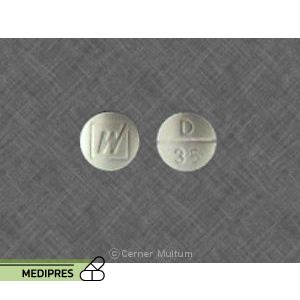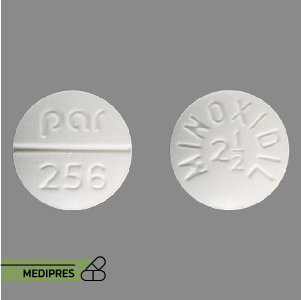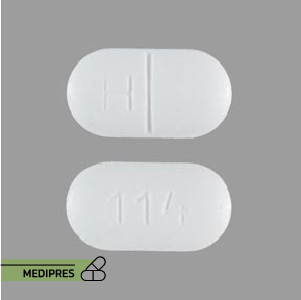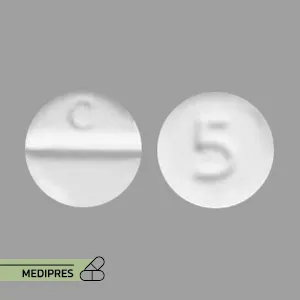
Meperidine (Injection)
23 June, 2023
Mephyton
23 June, 2023Meperidine Tablets
Category: M
Description
Generic name:
Meperidine
Drug class:
Opioid analgesic (phenylpiperidine class)
Dosage form:
Tablets: 50 mg, 75 mg, 100 mg
Root of administration:
Oral
Dose:
- Adults: 50–150 mg every 3–4 hours as needed, not to exceed 600 mg/day
- Elderly or debilitated: lower end of dosing range; extend dosing interval
- Preoperative sedation: 50–100 mg IM ½–1 hour before surgery
- Obstetrical analgesia: 50–100 mg IM
- Pediatric: Varies by indication; consult label.
Mechanism of action:
Meperidine acts as a μ-opioid receptor agonist, altering pain perception and response in the central nervous system; also has weak anticholinergic activity.
Drug usage cases:
- Management of moderate to severe acute pain
- Preoperative sedation and analgesia
- Obstetrical analgesia
- Analgesic supplement to anesthesia
- Off-label: treatment of rigors (shivering) in anesthesia
- Off-label: acute severe pain unresponsive to other opioids
Drug contra indications:
- Hypersensitivity to meperidine or excipients
- Concurrent or recent (within 14 days) MAO inhibitor therapy
- Severe respiratory depression
- Acute or severe bronchial asthma
- Paralytic ileus or gastrointestinal obstruction
- Severe hepatic impairment
- Elevated intracranial pressure or head injury
Side effects:
- Central nervous system: sedation, dizziness, headache, tremor, confusion, agitation, hallucinations, seizures (especially with normeperidine accumulation)
- Gastrointestinal: nausea, vomiting, constipation, dry mouth
- Respiratory: respiratory depression, hypoventilation
- Cardiovascular: hypotension, bradycardia
- Genitourinary: urinary retention
- Dermatologic: sweating, pruritus, rash
- Allergic reactions: urticaria, anaphylaxis
Warnings:
- Risk of seizures due to accumulation of neurotoxic metabolite (normeperidine), especially in renal impairment or high doses
- Potential for abuse, addiction, and dependence
- Risk of respiratory depression, especially in elderly, debilitated, or with respiratory disease
- Risk of serotonin syndrome when used with serotonergic drugs
- Use with caution in patients with head injury, increased intracranial pressure, or seizure disorders
- Use with caution in renal or hepatic impairment
- Use with caution in hypotension, hypovolemia, or shock
- Avoid abrupt discontinuation after prolonged use to prevent withdrawal
Use during pregnancy or breastfeeding:
Meperidine crosses the placenta and may cause neonatal respiratory depression and withdrawal symptoms if used near term. Use only if the potential benefit justifies the potential risk to the fetus. Avoid obstetrical administration close to delivery. Meperidine is excreted in breast milk; monitor nursing infants for sedation and respiratory depression or consider alternatives.



